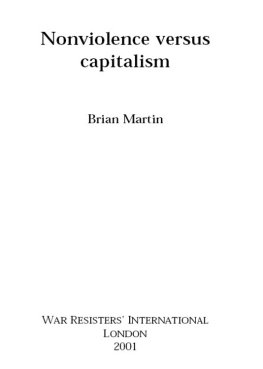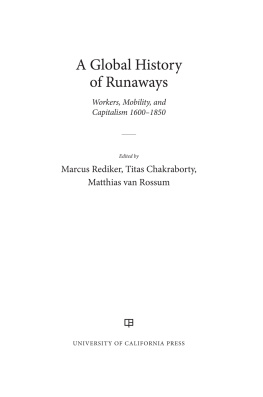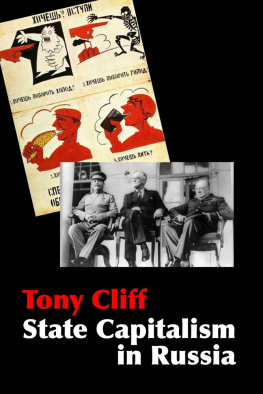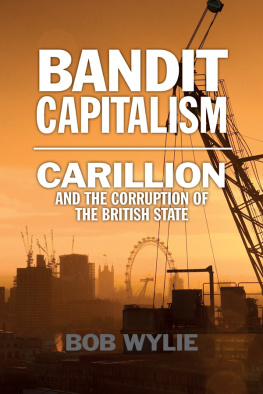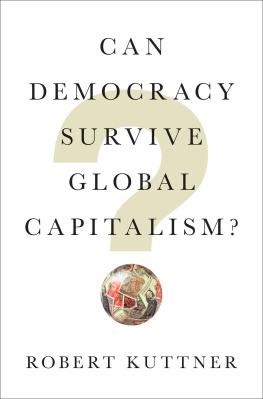REFUGEES, CAPITALISM AND THE BRITISH STATE
Vickers has written a stimulating book, casting a Marxist lens on the policies with which the British state has sought to control and contain the demands of asylum seekers. Vickers original research highlights the strengths and dignity within which asylum seekers and refugees seek to resist their subjugation as unpaid voluntary workers or marginalised low-paid labour and carve out a life in a society that cares little for them. Their capacity to look after each other stands in impressive contrast to the states indifference. This is a book all anti-racist practitioners and students ought to read.
Lena Dominelli, The University of Durham, UK
Vickers book makes an original, stimulating and thoughtful contribution, applying a familiar analysis in a new context. What marks this out from other literature regarding refugees and immigration more generally, is his use of Marxist theory to situate the discussion. Illuminated by rich local case material, this will be thought-provoking for a wide range of professional workers, not just advocates for refugees.
Gary Craig, Wilberforce Institute, UK
This is an informed and trenchant analysis of the role of the British state in shaping the experiences of refugees. Drawing on detailed new research and theoretical reflection it is indispensable reading for those interested in a deeper understanding of the changing position of refugees in contemporary societies.
John Solomos, City University London, UK
Dedicated to the lives and struggles of all those who are denied basic rights in Britain because of their country of birth or heritage.
Together we are stronger.
Refugees, Capitalism and the British State
Implications for Social Workers, Volunteers and Activists
TOM VICKERS
Durham University, UK

First published 2012 by Ashgate Publishing
Published 2016 by Routledge
2 Park Square, Milton Park, Abingdon, Oxon OX14 4RN
711 Third Avenue, New York, NY 10017, USA
Routledge is an imprint of the Taylor & Francis Group, an informa business
Copyright 2012 Tom Vickers
Tom Vickers has asserted his right under the Copyright, Designs and Patents Act, 1988, to be identified as the author of this work.
All rights reserved. No part of this book may be reprinted or reproduced or utilised in any form or by any electronic, mechanical, or other means, now known or hereafter invented, including photocopying and recording, or in any information storage or retrieval system, without permission in writing from the publishers.
Notice:
Product or corporate names may be trademarks or registered trademarks, and are used only for identification and explanation without intent to infringe.
British Library Cataloguing in Publication Data
Vickers, Tom.
Refugees, capitalism and the British state : implications for social workers, volunteers and activists.
1. Refugees Government policy Great Britain. 2. Refugees Legal status, laws, etc. Great Britain. 3. Racism Political aspects Great Britain. 4. Great Britain Race relations. 5. Social capital (Sociology) Great Britain. 6. Refugees Services for Great Britain. 7. Capitalism Social aspects Great Britain. 8. Communism and society.
I. Title
323.6310941-dc23
Library of Congress Cataloging-in-Publication Data
Vickers, Tom, 1982
Refugees, capitalism and the British state : implications for social workers, volunteers and activists / by Tom Vickers.
p. cm.
Includes bibliographical references and index.
ISBN 978-1-4094-4152-6 (hbk. : alk. paper)
1. Refugees Services for Great Britain. 2. Immigrants Services for Great Britain.
3. Social service Great Britain. I. Title.
2012022752
362.870941--dc23
2012022752
ISBN 9781409441526 (hbk)
ISBN 9781315604367 (ebk)
Contents
List of Tables
Acknowledgements
Many thanks to all the people who took part in the research that informs this book, for their time, energy and insights, and for sharing their experiences and perspectives. Thanks also to the organisations who helped to put me in touch with their volunteers and gave me access to their records; to Tyne and Wear Archives and Museums and Newcastle City Council for access to various documents; to my supervisors, Lena Dominelli and Sarah Banks, for giving me time amongst their hectic schedules and for their thoroughness and critical comments; to my wife, Annie, for her constant support; to my parents, Bob and Lyrrie, for their tireless enthusiasm; to Tina for her comments on dysconscious racism and Ann for her detailed comments on my draft; and to Carolyn, Lianne, Michael and all the other staff at Ashgate for their work in bringing the book to fruition. Last, but by no means least, I would like to thank my comrades and fellow activists, for sharing the work which has done so much to shape my understanding.
Chapter 1
Introduction
During the first years of the twenty-first century, refugees, as I define all those who seek asylum, have arrived in Britain with backgrounds often including trauma, abuse and health problems. These have been compounded within Britain by factors, mostly driven by the British state, including destitution, periodic detention, and the constant psychological stress of threatened deportation to situations of extreme danger. According to the values considered by many to be fundamental to professions such as social work, community development and youth work, this should call for urgent intervention. However, at the same time workers have increasingly found opportunities to make such interventions being closed to them. The policy approach of recent Labour governments has been characterised as a split approach, combining strategies of forceful assimilation with punitive segregation. This includes, in the case of asylum seekers, removal of rights to many mainstream welfare services, a prohibition on paid work, and forced dispersal across Britain (Humphries 2004: 101; Prior 2006: 7). Despite enjoying greater formal freedom than statutory services, voluntary sector projects have also come under growing funding pressures in relation to work with asylum seekers (Fell 2004). It has been argued that social workers are not only providing inadequate support for migrants, but are increasingly playing a role of constriction and punishment (Humphries 2004: 934), and acting as gatekeepers separating vulnerable people from vital resources (Hayes 2005: 1912; also Briskman and Cemlyn 2005; Morris 2007; Valtonen 2008).
However, little has been done to analyse these conditions and demands in the wider context of contemporary British capitalism and the British state. Where the wider context has been considered with a critical eye, consideration has generally not moved any closer to the coalface of practice than evaluating national and international policy (e.g. Back et al. 2002; Craig 2007a; Hoogvelt 2007; a notable exception is the combination of practice case studies with broad structural considerations in Dominelli 1997). This leaves a large and significant hole in the literature. Whose interests does the British state represent? Why are refugees being treated so poorly, even when they have frequently brought skills which are in short supply and in demand by the local economy? (a question raised by Dumper 2002, Phillimore and Goodson 2006 and Bloch 2007, among others). In what ways and to what extent do refugees consent to their treatment? What is the relationship between the interests of refugees and other groups of service users? These questions demand answers if social workers and other practitioners are to successfully navigate their role, and this book sets out to provide these through a Marxist analysis.
Next page




